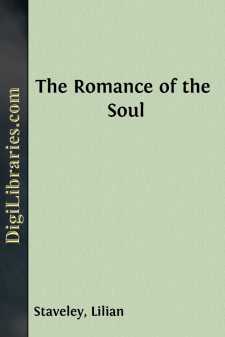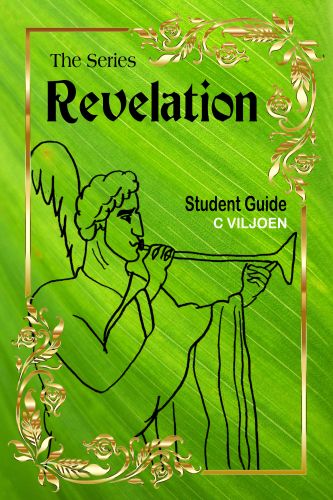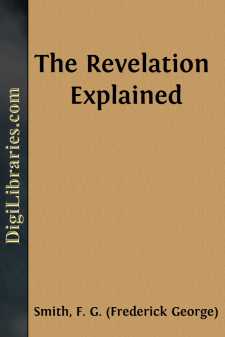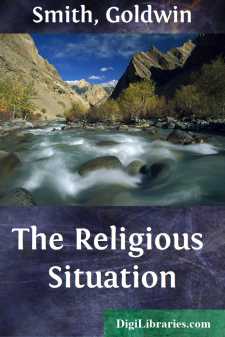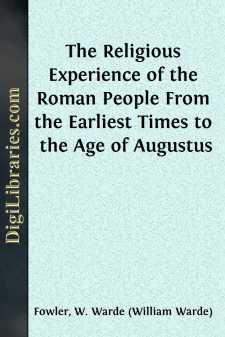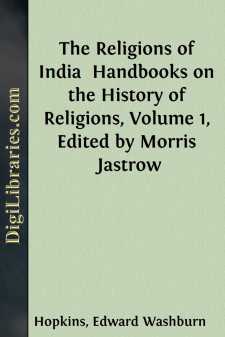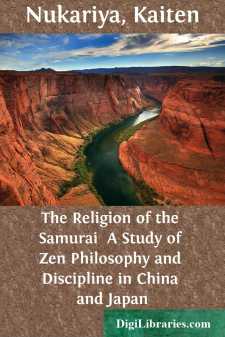Religion
- Agnosticism 2
- Antiquities & Archaeology 21
- Atheism 12
- Biblical Criticism & Interpretation 15
- Biblical Meditations 3
- Biblical Reference 1
- Biblical Studies 11
- Buddhism 8
- Christian Church 52
- Christian Education 5
- Christian Life 26
- Christianity 60
- Cults 2
- Devotional 6
- Eastern 2
- Education 4
- Eschatology 1
- Ethics 3
- General 60
- Gnosticism 1
- Hinduism 15
- History 28
- Holidays 10
- Inspirational 1
- Islam 8
- Judaism 3
- Leadership 1
- Meditations 3
- Monasticism 1
- Mysticism 11
- Philosophy 4
- Prayer 26
- Prayerbooks 5
- Religion & Science 12
- Sermons 54
- Spirituality 53
- Theism 2
- Theology 17
- Theosophy 15
Religion Books
Sort by:
CHAPTER I THE ROMANIZATION OF THE EMPIRE Historians seldom praise the Roman Empire. They regard it as a period of death and despotism, from which political freedom and creative genius and the energies of the speculative intellect were all alike excluded. There is, unquestionably, much truth in this judgement. The world of the Empire was indeed, as Mommsen has called it, an old world. Behind it lay the...
more...
by:
Lilian Staveley
What am I? In my flesh I am but equal to the beasts of the field. In my heart and mind I am corrupt Humanity. In my soul I know not what I am or may be, and therein lies my hope. O wonderful and mysterious soul, more fragile than gossamer and yet so strong that she may stand in the Presence of God and not perish! "Though ye have lien among the pots, yet shall ye be as the wings of a...
more...
by:
Chris Viljoen
Have you ever wondered about the end? Are you unsure about how much of it you will personally experience? Maybe the Revelation is total darkness for you... Look no further! In this guide you will find easy-to-understand explanations of every description in Revelation. Creative illustrations make it easy to color your imagination. Find out with us how Jesus finally wins! Look together through the...
more...
Nature of Symbolic Language. Before proceeding with the interpretation of this wonderful book, it will be necessary for us to pause and make inquiry concerning the nature of the language employed in its prophecies and concerning the mode of its interpretation. It will be seen at a glance that it is wholly unlike the common language of life; and it will be useless for us to undertake to ascertain its...
more...
I THE HOLY SYNOD AND TOLSTOI. When Count Tolstoi was excommunicated by the Holy Synod of Russia because "he preached the teachings which are contrary to the Christian faith," the world was divided in opinion and sympathy into two parts. The partisans of Tolstoi were in the majority in the Western world; those of the Holy Synod in Russia and the Orthodox East. Yet Holy Russia rejected Tolstoi...
more...
by:
Goldwin Smith
THE RELIGIOUS SITUATION. (From the North American Review.) "I express myself," says Bishop Butler, "with caution, lest I should be mistaken to vilify reason, which is, indeed, the only faculty which we have to judge concerning anything, even revelation itself; or be misunderstood to assert that a supposed revelation cannot be proved false from internal characters." "The faculty of...
more...
PREFACE Lord Gifford in founding his lectureship directed that the lectures should be public and popular, i.e. not restricted to members of a University. Accordingly in lecturing I endeavoured to make myself intelligible to a general audience by avoiding much technical discussion and controversial matter, and by keeping to the plan of describing in outline the development and decay of the religion of...
more...
CHAPTER I.—INTRODUCTION. SOURCES.—DATES.—METHODS OF INTERPRETATION.—DIVISIONS OF SUBJECT. SOURCES. India always has been a land of religions. In the earliest Vedic literature are found not only hymns in praise of the accepted gods, but also doubts in regard to the worth of these gods; the beginnings of a new religion incorporated into the earliest records of the old. And later, when, about 300...
more...
by:
Kaiten Nukariya
Buddhism is geographically divided into two schools[FN#1]—the Southern, the older and simpler, and the Northern, the later and more developed faith. The former, based mainly on the Pali texts[FN#2] is known as Hinayana[FN#3] (small vehicle), or the inferior doctrine; while the latter, based on the various Sanskrit texts,[4] is known as Mahayana (large vehicle), or superior doctrine. The chief tenets...
more...
by:
J. A. MacCulloch
CHAPTER I. INTRODUCTORY. To summon a dead religion from its forgotten grave and to make it tell its story, would require an enchanter's wand. Other old faiths, of Egypt, Babylon, Greece, Rome, are known to us. But in their case liturgies, myths, theogonies, theologies, and the accessories of cult, remain to yield their report of the outward form of human belief and aspiration. How scanty, on the...
more...



